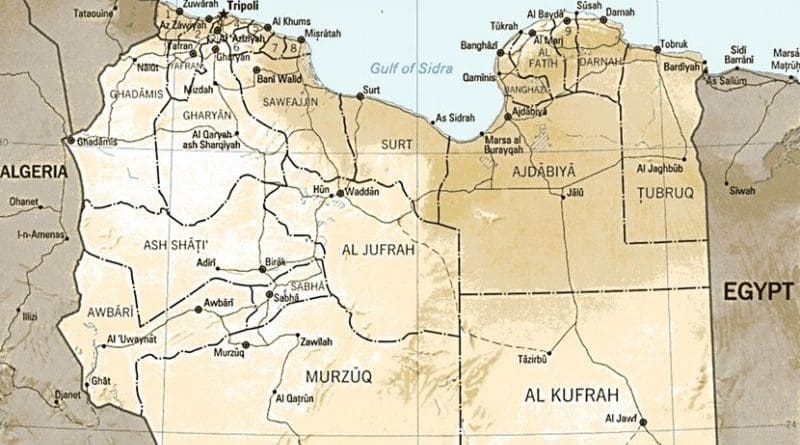Libyans Want The World To Keep Out
By RT
With Libya locked in fierce battles, American and British forces remain on stand-by. But as thousands flee the troubled land, many of the residents say they do not want international involvement, viewing it as another form of oppression.
The road out of Libya is also the road that lines the pockets of hundreds of Libyans who make their living selling fuel in Tunisia for ten times the price they paid back home.
“Libya and Gaddafi are one. Long live Gaddafi. Let him stay in power for life,” says Libyan citizen Mahmoud.
And as much as some may support Gaddafi, other Libyans despise the United States.
Ahmed is a Libyan citizen working in Tunisia. For days he has been trying to get across the border to check up on his family who are on the other side.
He knows some of them have been injured. The answer, he says, is not with foreign intervention.
“The Libyan people don’t want another army come in Libya,” Ahmed says.
But foreign nations seem to be giving little concern to what Libyans themselves actually want.
The debate about a no-fly zone over Libya is continuing, and US warships are sailing not far from the Libyan coast.
“America has come to help Libya not for Libya, they help Libya for control, for gas – this is the problem,” Ahmed says.
People in Libya are against foreign involvement as they know well what price is often paid for so-called “humanitarian assistance”.
History has shown that humanitarian aid in any war zone is more often than not just thinly disguised military aid. During the war in Bosnia it was discovered that UN trucks delivering aid were in fact transporting military equipment.
In Afghanistan, the very weapons America gave to the Taliban in the early 1980s came back to haunt the US army following its 2001 Afghan invasion.
So it is no wonder that Libyans, whether they support Gaddafi or not, are united on one issue – they want the world and America in particular to stay out of their affairs.
Dennis Kucinich, member of the US House of Representatives, says if Washington intervenes in Libya, the country will be lost to tyranny.
“All over the Middle East and North Africa you see people rising up and challenging their governments,” he said. “The right of self-determination is an inherent right. But it doesn’t become self-determination or become something else if any nation intervenes on one side or the other.”
Author and blogger Junaid Levesque-Alam said it would be a serious mistake if the US and its allies choose a military path in Libya.
“I think intervention in Libya would rob the moral force and dignity of indigenous Arab revolt that we have been seeing,” Junaid Levesque-Alam said. “I think it would be a serious mistake that would put the US in yet another difficult quagmire. If the crisis truly gets out of hand, then it’s up to the Arab League and the Afghan Union who have discussed their willingness to perhaps intervene if things did truly get out of hand. Any military adventure can end disastrously regardless the initial motives even if they are noble and benign which in itself is a heroic assumption, really.”
Gaddafi regime calls on UN Security Council to suspend sanctions
In a letter to the UN Security Council, Libyan Foreign Minister Mussa Kussa said that only a “modicum” of force has been used against opposition demonstrators, AFP news agency reports.
“Where a modicum of force has been used, it has been against law-breakers that have included extremist elements who have exploited others in order to commit acts of destruction and terrorism,” the letter said.
Mussa Kussa also added that the government was “taken aback” by the sanctions.
“We believed that the Security Council would understand that the measures that have been taken are consistent with the duty of a state to maintain security and were consequently taken aback by the adoption of sanctions,” he added.
The letter, which is the first official reaction of the Gaddafi regime since the sanctions were imposed, is calling for the travel ban and assets freeze ordered against Gaddafi, his family and associates, “to be suspended until such time as the truth is established”.
The regime also said a new envoy to the United Nations has been appointed, to replace the one who resigned.
Meanwhile, on Thursday evening Libyan authorities disconnected the country’s people from the internet.
Servers in Libya became inaccessible shortly after 07.30 pm GMT, according to Google’s Transparency Report.
The Libyan government controls the country’s primary Internet service provider.

